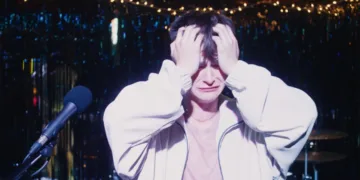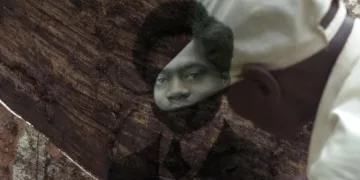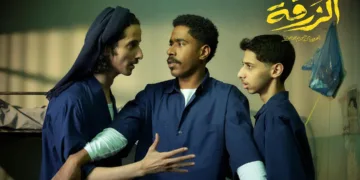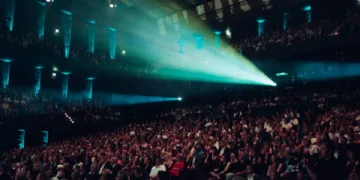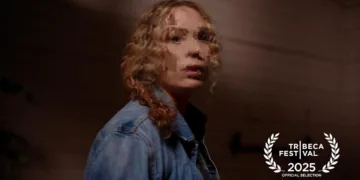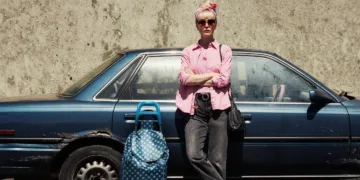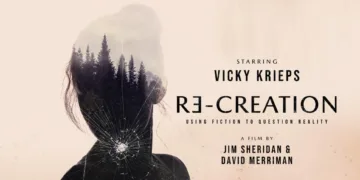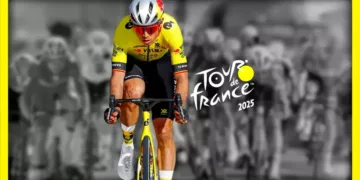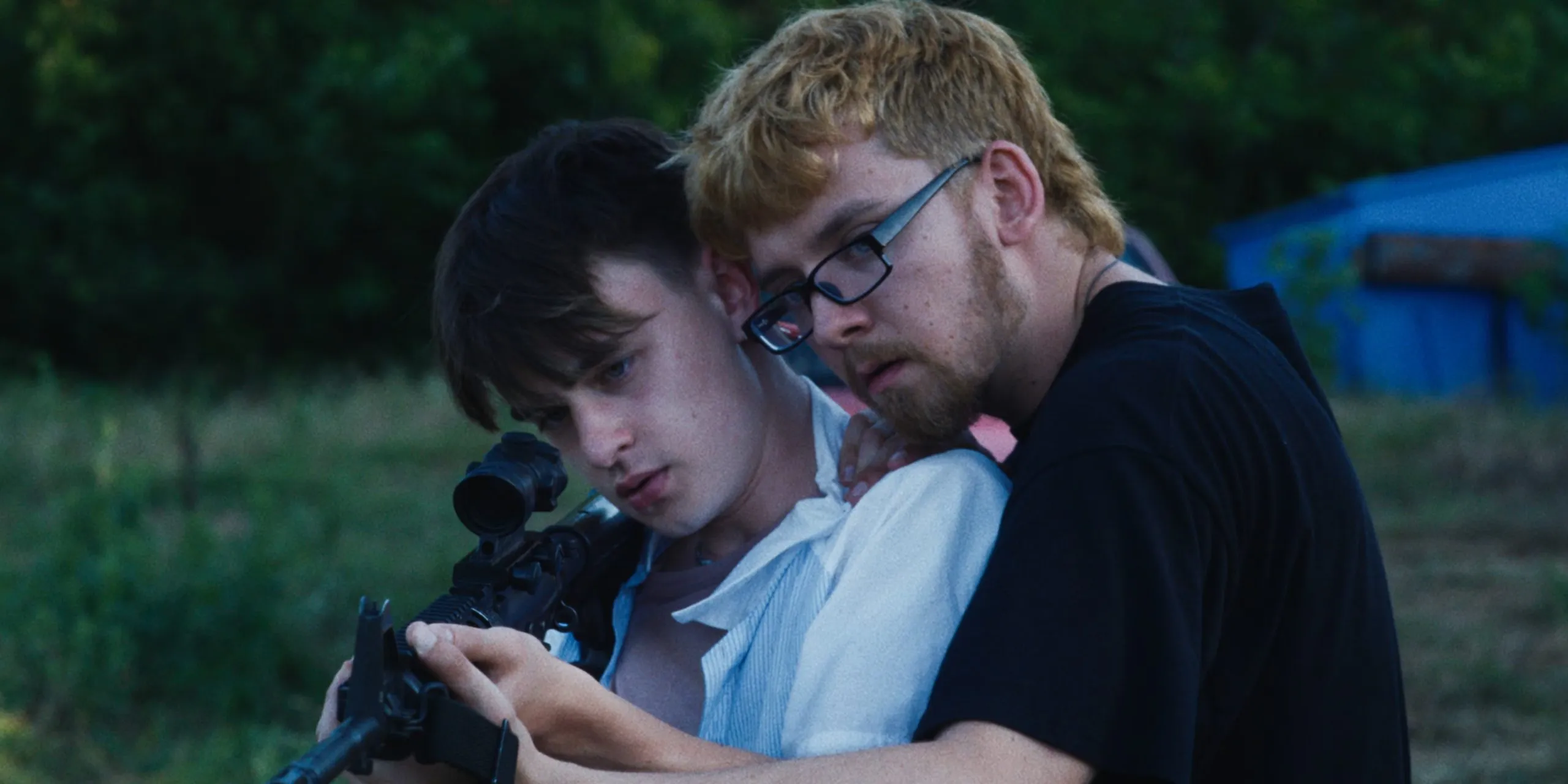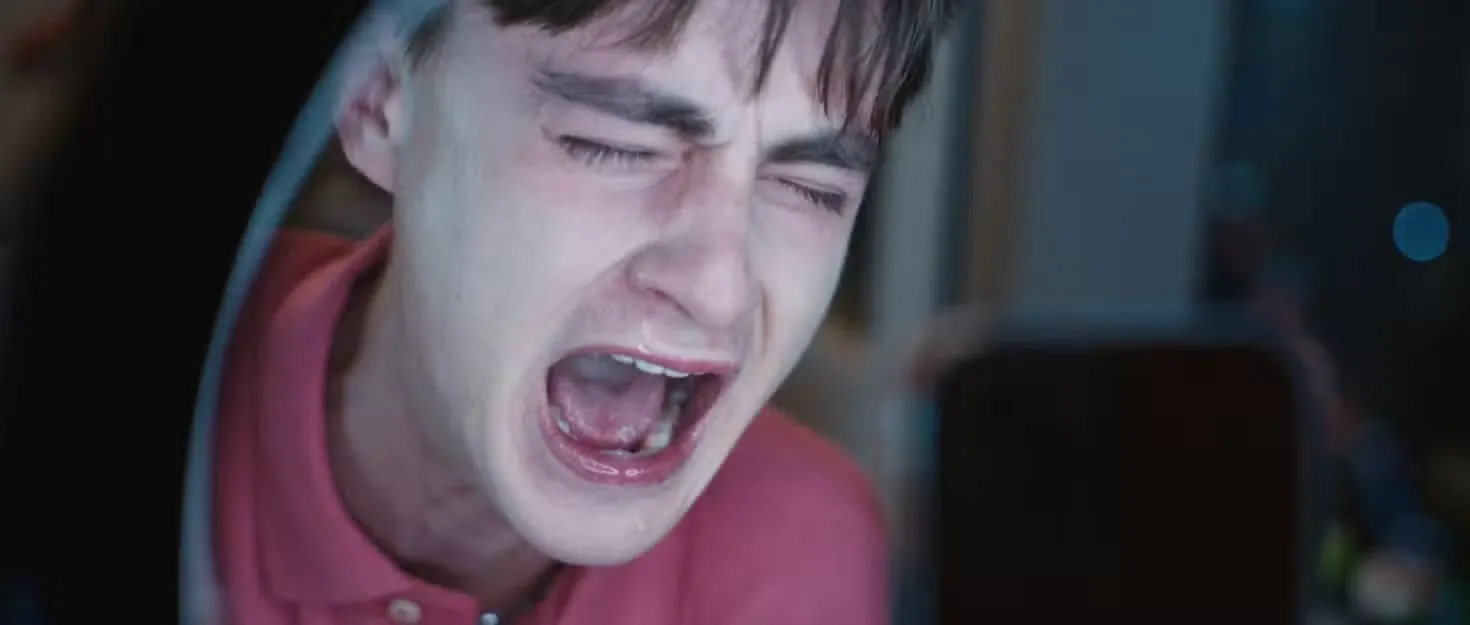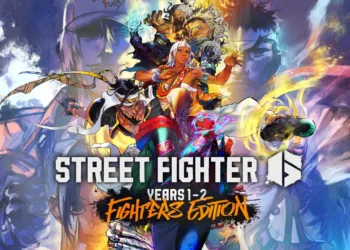Balthazar, the subject of Oscar Boyson’s debut feature, is less a character and more a modern symptom. As played by Jaeden Martell, he is a creature of immense privilege and profound emptiness, adrift in a New York high-rise with a perpetually busy mother and his own life coach. His defining skill, his primary loop, is an unnerving ability to produce raw, snot-dripping tears on command for his social media feed.
This is not acting in a traditional sense; it is a performance of empathy as a status symbol. The film immediately establishes this as its central mechanic: the public broadcast of emotion as a form of currency.
Our Hero, Balthazar wastes no time setting its tone as a deeply uncomfortable satire, the kind of sharp-edged indie film that probes at a wound you didn’t know was there. It presents a world where authentic feeling has been replaced by its curated, monetizable facsimile.
The Empath and the Edgelord
Balthazar’s world is a hermetically sealed terrarium of wealth. His relationships are transactional, from his check-signing father to the life coach who sees the family as an ATM. Even the active shooter drills at his tony private school feel like another simulation, a grotesque mini-game he observes with the same cool distance he applies to everything.
His emotional landscape is barren, which makes his attempt to connect with his classmate Eleanor so telling. Played by Pippa Knowles with a spark of genuine anger and principle, Eleanor is the film’s moral anchor. Her activism against gun violence is real, making Balthazar’s sudden interest in the topic painfully transparent.
His plan to find and “reform” a potential school shooter is not a noble quest; it’s a misguided strategy to win the affection of a girl he cannot comprehend. Martell’s performance here is key, capturing a chillingly authentic portrait of inauthenticity.
The story then hard-cuts to Texas, introducing his thematic and economic opposite. Solomon, brought to life by a nearly unrecognizable Asa Butterfield, is a young man trapped by circumstance. He lives with his ailing grandmother in a small home, works a dead-end convenience store job, and marinates in the isolating rhetoric of the internet’s darkest corners.
His online threats are not the calculated moves of a monster but the desperate roars of a boy drowning in loneliness and neglect. The film presents him as a player stuck in the starting zone, with no clear path to level up and a deep yearning for his father’s approval. Their eventual connection through private messages is the narrative’s inciting incident, a grim matchmaking service that pairs the boy who performs empathy with the boy who performs menace.
A Buddy System of Broken Boys
Balthazar’s trip to Texas is a journey into an entirely different game world, a place for which he has none of the right equipment or experience. The sun-bleached landscapes and dusty roads are a far cry from his sterile Manhattan apartment.
It is here that the film’s uncomfortable dark comedy truly finds its footing. An unlikely, awkward friendship begins to sprout between the two boys, rooted in their shared experience of parental abandonment.
Their bonding activities are a portrait of modern despair, most notably when they take turns shooting at large, unsold containers of a testosterone supplement that Solomon’s grifter father hawks. This is their version of a campfire chat, finding a strange kinship amidst the debris of their lives.
The film uses this extended middle act to dissect its central concerns with startling clarity. The guns Solomon owns are not just props; they are objects that fundamentally alter the power dynamic. For Solomon, they are a familiar, if unsettling, part of his environment.
For Balthazar, they are a fascinating and dangerous new power-up, a tool he wields with a terrifying lack of understanding. The narrative also zooms in on Solomon’s father (a perfectly menacing Chris Bauer), a walking caricature of toxic masculinity who personifies the empty promises sold to lost young men.
The most potent commentary, however, comes from the class divide. Balthazar’s casual, unthinking dismissal of Solomon’s legitimate fears about being evicted is a moment of quiet horror. It’s a perception check he critically fails, revealing the depth of his ignorance. In this section, Butterfield gives Solomon a tragic, volatile energy, while Martell shows Balthazar’s facade cracking as he experiences real fear and excitement for the first time.
The Final, Unskippable Cutscene
The film barrels toward a violent and tragic finale that feels both shocking and unavoidable. The story’s resolution is soaked in a bitter irony, snapping Balthazar’s personal journey back to its starting point in a macabre and public fashion.
The last shot is the film’s most brutal punchline, a perfect, cynical grace note. Director Oscar Boyson, an associate of the Safdie brothers, employs their signature style to great effect. The filmmaking itself becomes a source of tension. The restless, handheld camera, combined with a pulsing electronic score, creates a persistent feeling of anxiety that mirrors the characters’ chaotic internal states.
It feels less like watching a movie and more like playing a high-stakes stealth mission where you are constantly on the verge of being caught. This stylistic choice is not just for show; it is a mechanism for putting the audience directly into the characters’ agitated headspace.
The film’s final statement is a potent one, a warning about how the spectacle of social media flattens real tragedy, and how that digital performance can bleed into reality with devastating consequences.
Our Hero, Balthazar premiered at the Tribeca Film Festival on June 8, 2025, earning acclaim for its bold satire, sharp commentary on social media and modern masculinity, and standout performances—particularly from Martell and Butterfield.
Full Credits
Director: Oscar Boyson
Writers: Oscar Boyson, Ricky Camilleri
Producers and Executive Producers: Oscar Boyson, Ricky Camilleri, Jon Wroblewski, David Duque-Estrada, Miles Skinner, Alex Hughes, Jaeden Martell, Scott Aharoni, Sinan Eczacibasi, Alihan Yalcindag, Noah Centineo, Enzo Marc, Alex Black, Riccardo Maddalosso, Eugene Kotlyarenko, Nathan Wing, Del Eswar, Grace Zander, D.J. Jiang, Nicholas Erickson, Anna-Nora Bernstein, Zak Williams, Christian Sosa, Peter Gold, Blaine Kern III, Pir Granoff
Cast: Jaeden Martell, Asa Butterfield, Chris Bauer, Jennifer Ehle, Anna Baryshnikov, Noah Centineo, Becky Ann Baker, Avan Jogia, Pippa Knowles
Director of Photography (Cinematographer): Christopher Messina
Editors: Nate DeYoung, Erin DeWitt
Composer: James William Blades
The Review
Our Hero, Balthazar
Our Hero, Balthazar is a brilliant, uncomfortable, and essential piece of satire for our extremely online times. It functions as a grim character study and a sharp cultural critique, powered by two stunningly transformative performances from Jaeden Martell and Asa Butterfield. The film’s relentless energy and bleak humor will not be for everyone, but for those willing to engage with its difficult questions, it offers a potent and disturbingly accurate reflection of a society performing its own anxiety. It’s a fantastic, unnerving achievement that will stick with you long after the credits roll.
PROS
- Incisive and timely satire of online culture and performative emotion.
- Phenomenal, career-best performances from Jaeden Martell and Asa Butterfield.
- A tense, restless directorial style that amplifies the story's themes.
- Unflinching in its exploration of male loneliness and class divides.
CONS
- The relentlessly bleak tone may alienate some viewers.
- Its cynical perspective offers little in the way of comfort or easy answers.
- Could be perceived as provocative for the sake of being provocative.
